How to Use Transferable Skills to Land a New Job
It is not uncommon in today’s job market for employees to make multiple role changes throughout their careers. Whether you’re changing industries, exploring new roles, or embarking on a fresh career path, the ability to effectively leverage your skill set can be a game-changer.
In this blog, we will guide you through the steps to utilise your transferable skills and land a new job. We will explore the importance of identifying your transferable skills, matching them to job requirements, and highlighting their relevance through tailored CVs. Additionally, we’ll delve into how working with an expert recruitment agency like RecruitmentPlus can maximise your chances of success.
What are Transferable Skills?
Transferable skills are the expertise, proficiency, and experiences that you gain throughout your life and can apply to a wide range of jobs and careers. By understanding how to showcase and utilise these valuable skills, you can position yourself as a highly desirable candidate and successfully navigate the job search process. We guarantee you are a lot more equipped than you realise to go after the career or role you want. What is important is that you’re able to identify and leverage what you have, rather than what you wished you had.
Identifying Your Transferable Skills
So, how can you figure out exactly what your transferable skills are? First, it’s important to note that there are two types of skills: hard and soft.
A hard skill refers to a specific technical or specialised expertise that can be taught, learned, and measured. It refers to a tangible and quantifiable level of proficiency. Most hard skills are gained through education, training, or certification.
Hard Skill Examples
- Graphic Design: Skill in using software like Adobe Photoshop.
- Foreign Languages: Fluency in multiple languages.
- Accounting: Knowledge of financial principles, bookkeeping, and proficiency in accounting software like QuickBooks or Excel.
- Technical Writing: Ability to write clear and concise technical documents, manuals, or reports.
- Project Management: Familiarity with project management methodologies like Agile or Scrum, and tools like Microsoft Project or Jira.
- Network Administration: Skill in configuring and managing computer networks, including routers, switches, and firewalls.
- Data Entry: Accurate and efficient data entry skills, often involving typing speed and accuracy.
A soft skill refers to a personal attribute or characteristic that relates to how individuals interact with others and navigate their environment.
Soft Skill Examples
- Communication: The ability to effectively convey information, listen actively, and express ideas clearly to individuals or groups.
- Leadership: The readiness to inspire and motivate others, take initiative, and guide a team towards shared goals.
- Problem-Solving: The skill of analysing challenges, thinking critically, and finding innovative solutions.
- Adaptability: The flexibility to adjust to changing circumstances, embrace new technologies or processes, and thrive in dynamic environments.
- Teamwork: The ability to collaborate, cooperate, and work cooperatively with others towards a common aim.
- Conflict Resolution: The skill of managing and resolving conflicts or disagreements constructively, fostering positive working relationships.
- Critical Thinking: The ability to analyse information, evaluate different perspectives, and make informed decisions.
We all gain soft and hard skills in our personal and professional lives. However, they may not be obvious to us without taking the time to identify them.
Tip: Get out a pen and paper. Split the paper into two sections and write “personal” and “professional” on the top of each section. Think about everything you do throughout the day and write down the skills needed to complete each of these tasks. Think about your previous experiences such as work, school or personal projects. What skills did you gain or use?
How to Use Transferable Skills to Find a New Job
We want to take you step-by-step through how to use transferable skills to your advantage so you can find the job of your dreams.
Step One: Identify Your Transferable Skills
As explained above, make that list of all of your skills and abilities both in a personal and professional capacity.
Step Two: Understand the Job Requirements
Review the job description of a role you’re interested in and identify the skills and qualifications that are required for the role. Don’t get too hung up on the specific industry or job title and focus on the main abilities needed instead.
Step Three: Compare Your Skills to The Skills Needed
Figure out which of your skills (from the list you’ve already created) compare to the ones outlined by the company or employer. Think about your own work experience and how your skills relate to the position you’re going to apply for.
Step Four: Update Your CV
It’s vital that you tailor your CV to emphasise the most relevant skills that you possess. It is also important to highlight your accomplishments and show how you have successfully used your skill set in past roles. Customise your CV and cover letter and write it in a way that helps the reader know you understand exactly what will be expected of them.
Tip: visit our CV Clinic for more advice on crafting the perfect CV.
Step Five: Contact RecruitmentPlus
Navigating career changes or seeking new opportunities can be a daunting task. However, with the help of a skilled recruitment agency, the process becomes much smoother. Not only do we offer valuable insights and expertise, but we also provide the much-needed support of a consultant who truly understands your situation. Our dedicated consultants take your previous experience into account, working closely with you to prepare you for interviews and connect you with your dream company. With their guidance, you can confidently step into the next chapter of your career journey.
How to Get Started
Step One: Find out more information about RecruitmentPlus
Step Two: Contact our team of expert recruiters to discuss your needs
Step Three: Search our Live Jobs
Step Four: Upload your CV
Suggested Further Reading
10 Interview Questions YOU Need to Ask
Working with a Temping Agency to Get Your Career Back on Track
Do you follow us on social media?
We share weekly valuable content for candidates across LinkedIn, Instagram and Facebook.



